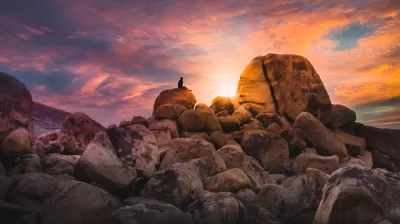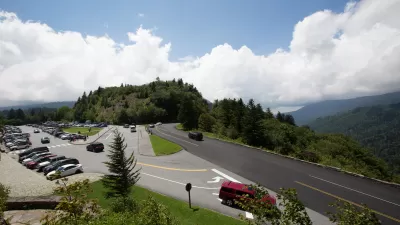To travel ethically, visitors to national parks need to be more mindful and better understand the history of the parks and their impacts on these spaces and surrounding communities.

The great outdoors have been incredibly popular with the public during these COVID times. Numerous studies and articles provide evidence of this, with examples including "Return of the National Parks," "National Forests Were Highly Popular in 2020," "Parks Overwhelmed by Record Numbers of Visitors," and "Avoiding Crowds at National Parks."
In this article, Amanda Machado discusses an aspect of outdoor travel that is often overlooked or neglected: how to travel in a socially and environmentally responsible way given that the national park system was built upon land stolen from Native Americans. As Machado explains, we really need to consider how "the way we take advantage of our national parks has often caused harm: the genocide of Indigenous communities to make 'space' for outdoor recreation, the unmanageable waste that accumulates from large crowds of tourists, the scarcity of resources for people living near parks."
The article offers four tips for travelers to think about before their next visit to a national park:
- Research how the pandemic has affected local communities surrounding national parks.
- Consider alternatives to popular tourist destinations.
- Seek out opportunities to acknowledge Indigenous communities.
- Explore ways to abandon the mindset of chasing after "pristine wilderness"
For details on each tip, please read the source article.
FULL STORY: Wanderlust and stolen land: how to mindfully explore the American outdoors

Planetizen Federal Action Tracker
A weekly monitor of how Trump’s orders and actions are impacting planners and planning in America.

Map: Where Senate Republicans Want to Sell Your Public Lands
For public land advocates, the Senate Republicans’ proposal to sell millions of acres of public land in the West is “the biggest fight of their careers.”

Restaurant Patios Were a Pandemic Win — Why Were They so Hard to Keep?
Social distancing requirements and changes in travel patterns prompted cities to pilot new uses for street and sidewalk space. Then it got complicated.

Albuquerque Route 66 Motels Become Affordable Housing
A $4 million city fund is incentivizing developers to breathe new life into derelict midcentury motels.

DC Area County Eliminates Bus Fares
Montgomery County joins a growing trend of making transit free.

Platform Pilsner: Vancouver Transit Agency Releases... a Beer?
TransLink will receive a portion of every sale of the four-pack.
Urban Design for Planners 1: Software Tools
This six-course series explores essential urban design concepts using open source software and equips planners with the tools they need to participate fully in the urban design process.
Planning for Universal Design
Learn the tools for implementing Universal Design in planning regulations.
Heyer Gruel & Associates PA
JM Goldson LLC
Custer County Colorado
City of Camden Redevelopment Agency
City of Astoria
Transportation Research & Education Center (TREC) at Portland State University
Camden Redevelopment Agency
City of Claremont
Municipality of Princeton (NJ)





























